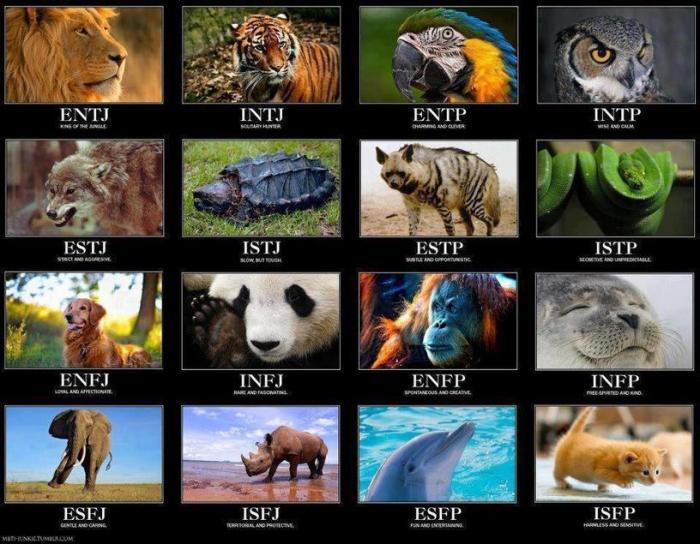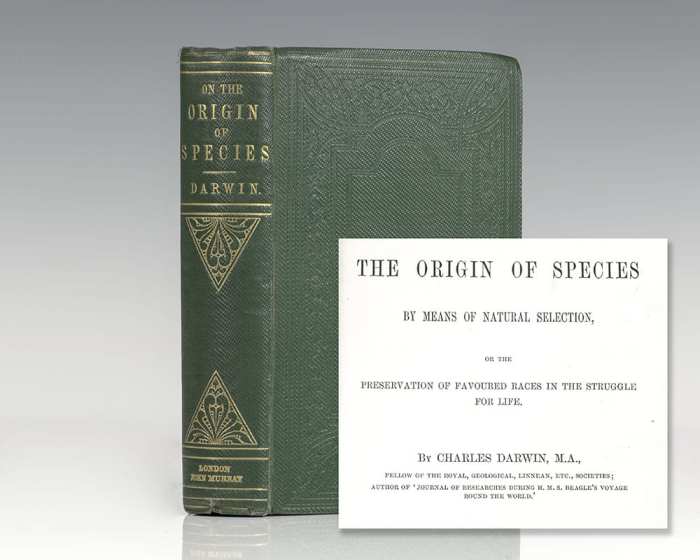The origin of species mbti – The Origin of Species: MBTI embarks on an enthralling journey, exploring the fascinating interplay between Charles Darwin’s evolutionary theory and the Myers-Briggs Type Indicator (MBTI), shedding light on the profound impact of natural selection on our personality traits.
Delving into the depths of MBTI’s four dimensions, we unravel the intricate connections between our innate preferences and our responses to environmental pressures, revealing how personality can shape our evolutionary trajectory.
Introduction to the Origin of Species

Charles Darwin’s theory of evolution through natural selection, as Artikeld in his seminal work “On the Origin of Species,” is a groundbreaking scientific concept that has revolutionized our understanding of life on Earth. It explains the process by which species evolve and adapt to their environment over time, leading to the diversity of life forms we observe today.
Historical Context and Scientific Advancements
Darwin’s theory was built upon the work of earlier scientists, including his grandfather Erasmus Darwin and Jean-Baptiste Lamarck. The Industrial Revolution and advancements in geology and paleontology provided the necessary scientific framework for Darwin to develop his ideas. By meticulously observing and collecting specimens during his voyage on the HMS Beagle, Darwin gathered crucial evidence that challenged the prevailing belief in the fixity of species.
MBTI and Evolutionary Theory
The Myers-Briggs Type Indicator (MBTI) is a personality inventory that measures an individual’s preferences in four dimensions: Extraversion vs. Introversion, Sensing vs. Intuition, Thinking vs. Feeling, and Judging vs. Perceiving.
It is widely used to understand individual differences in behavior, communication, and decision-making.
MBTI can also be used to understand individual differences in response to environmental pressures. For example, individuals who are high in Extraversion may be more likely to seek out social interactions and thrive in environments that offer opportunities for collaboration and networking.
In contrast, individuals who are high in Introversion may prefer to work independently and may be more sensitive to environmental stimuli.
MBTI and Evolutionary Psychology
Evolutionary psychology is a field of study that seeks to understand human behavior in terms of its evolutionary origins. Evolutionary psychologists argue that many of our behaviors and preferences are the result of adaptations that have evolved over time to help us survive and reproduce.
For example, our preference for social interaction may have evolved because it helped us to form alliances and cooperate with others to obtain food and resources.
The origin of species MBTI has been a topic of great interest for many years. Researchers have conducted various studies to understand the development of this personality test. For instance, a Swot Analysis For Toms Shoes highlighted the strengths, weaknesses, opportunities, and threats associated with the footwear company.
Similarly, studies on the origin of species MBTI have examined the factors that have influenced its creation and evolution.
MBTI can be used to identify individual differences in evolutionary adaptations. For example, individuals who are high in Extraversion may be more likely to have evolved adaptations that promote social bonding and cooperation. In contrast, individuals who are high in Introversion may be more likely to have evolved adaptations that promote self-sufficiency and independence.
MBTI Types and Natural Selection

The MBTI (Myers-Briggs Type Indicator) is a personality assessment tool that categorizes individuals based on their preferences in four areas: Extraversion vs. Introversion, Sensing vs. Intuition, Thinking vs. Feeling, and Judging vs. Perceiving.
These preferences are believed to influence an individual’s behavior, decision-making, and overall approach to life. While the MBTI is not a measure of intelligence or competence, it can provide insights into an individual’s strengths, weaknesses, and potential for success in different environments.
In the context of natural selection, the MBTI may have implications for an individual’s survival and reproductive success. Different environmental conditions favor different personality traits, and individuals with certain MBTI types may have an advantage or disadvantage in specific settings.
MBTI Types and Environmental Adaptation
- Extravertsmay have an advantage in social environments, where they can build relationships and gather information. They may also be more likely to take risks and explore new opportunities, which can lead to increased reproductive success.
- Introvertsmay have an advantage in environments that require focus and concentration. They may also be more likely to plan ahead and avoid unnecessary risks, which can increase their chances of survival.
- Sensorsmay have an advantage in environments that require practical skills and attention to detail. They may also be more likely to follow established rules and procedures, which can increase their chances of survival.
- Intuitivesmay have an advantage in environments that require creativity and innovation. They may also be more likely to question authority and seek out new experiences, which can lead to increased reproductive success.
- Thinkersmay have an advantage in environments that require logical reasoning and decision-making. They may also be more likely to prioritize objectivity and efficiency, which can increase their chances of survival.
- Feelersmay have an advantage in environments that require empathy and social skills. They may also be more likely to prioritize relationships and harmony, which can increase their chances of reproductive success.
- Judgersmay have an advantage in environments that require organization and structure. They may also be more likely to plan ahead and follow through on their commitments, which can increase their chances of survival.
- Perceiversmay have an advantage in environments that require flexibility and adaptability. They may also be more likely to embrace change and seek out new experiences, which can lead to increased reproductive success.
Cultural and Societal Implications
MBTI provides a framework for understanding the diverse ways individuals interact with the world and each other. This framework can inform our understanding of cultural and societal norms, which are often shaped by the dominant MBTI types within a given society.
MBTI can also have implications for education, career choices, and interpersonal relationships. By understanding our own MBTI type and the types of others, we can better tailor our learning experiences, career paths, and interactions to our strengths and preferences.
Education
MBTI can help educators understand the different learning styles of their students. For example, students with a preference for Extraversion may learn best through group discussions and hands-on activities, while students with a preference for Introversion may prefer to learn independently and through written assignments.
Career Choices
MBTI can help individuals identify careers that are well-suited to their personality type. For example, individuals with a preference for Thinking may be drawn to careers in science, technology, engineering, and mathematics (STEM), while individuals with a preference for Feeling may be drawn to careers in the arts, humanities, and social sciences.
Interpersonal Relationships
MBTI can help individuals understand the different communication styles and conflict-resolution strategies of others. For example, individuals with a preference for Sensing may prefer to communicate in a concrete and factual way, while individuals with a preference for Intuition may prefer to communicate in a more abstract and conceptual way.
Limitations and Controversies

The MBTI has faced criticism and controversy over its validity and reliability. Critics argue that the test is not a reliable measure of personality, as results can vary significantly when the same individual takes the test multiple times. Additionally, the MBTI’s theoretical basis has been challenged, with some researchers arguing that it does not accurately represent the complexity of human personality.
Despite its limitations, the MBTI remains a popular tool for understanding individual differences. However, it is important to use the test with caution and to be aware of its limitations. Further research is needed to validate the MBTI’s claims and to explore alternative theories and models that attempt to explain individual differences.
Alternative Theories and Models, The origin of species mbti
There are a number of alternative theories and models that attempt to explain individual differences. These include:
- The Five-Factor Model (FFM) is a widely used personality model that measures five broad personality traits: extraversion, agreeableness, conscientiousness, neuroticism, and openness to experience.
- The HEXACO model is a six-factor personality model that measures honesty-humility, emotionality, extraversion, agreeableness, conscientiousness, and openness to experience.
- The Enneagram is a personality typology system that identifies nine different personality types.
These are just a few of the many different theories and models that attempt to explain individual differences. Each theory has its own strengths and weaknesses, and it is important to choose the theory that is most appropriate for the specific research question being asked.
FAQ Corner: The Origin Of Species Mbti
What is the significance of MBTI in understanding evolutionary psychology?
MBTI provides a framework for understanding individual differences in response to environmental pressures, allowing us to explore how personality traits influence survival and reproductive success.
How can MBTI inform our understanding of cultural norms?
MBTI can help us identify the personality traits that are more prevalent in different cultures, shedding light on the psychological underpinnings of cultural values and behaviors.
What are the limitations of MBTI in explaining individual differences?
While MBTI is a valuable tool, it is important to acknowledge its limitations. It is not a perfect measure of personality and should be used in conjunction with other assessment tools for a comprehensive understanding of individual differences.